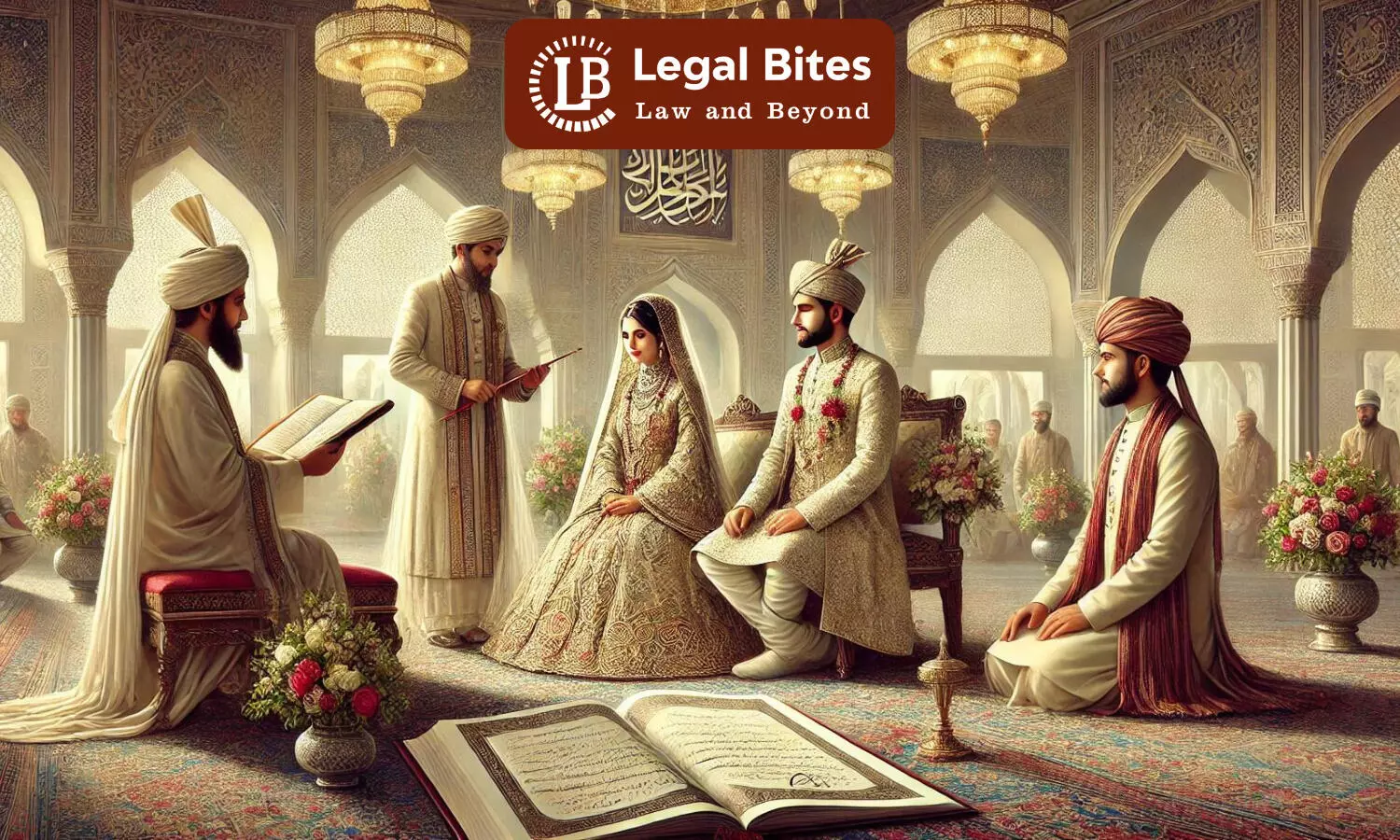Case Summary: Chand Patel v Bismillah Begum (2008) | Legal Aspects of Muslim Marriage
The Supreme Court ruled that if a Muslim man marries his wife’s sister while still married to his first wife, the marriage is considered irregular.;

The case of Chand Patel v. Bismillah Begum decided by the Supreme Court of India in 2008, touches upon critical issues related to Muslim personal law, particularly concerning the requirements for a valid nikah (Muslim marriage).Case Title: Chand Patel v. Bismillah BegumCourt: Supreme Court of IndiaCitation: Appeal (Crl.) 488 of 2008Judge: Justice Altamas Kabir & Justice J.M.PanchalDate of Judgment: 14/03/2008Facts of the CaseThe case revolves around the legality of a second marriage in...
The case of Chand Patel v. Bismillah Begum decided by the Supreme Court of India in 2008, touches upon critical issues related to Muslim personal law, particularly concerning the requirements for a valid nikah (Muslim marriage).
Case Title: Chand Patel v. Bismillah Begum
Court: Supreme Court of India
Citation: Appeal (Crl.) 488 of 2008
Judge: Justice Altamas Kabir & Justice J.M.Panchal
Date of Judgment: 14/03/2008
Facts of the Case
The case revolves around the legality of a second marriage in the context of Muslim personal law. Bismillah Begum (respondent no. 1) filed a suit for maintenance, claiming to be the legally wedded wife of Chand Patel.
In her petition, respondent no. 1 acknowledged that the appellant was married to her elder sister, Mashaq Bee, and that with the consent of his first wife, the appellant also married respondent no. 1. Although a Nikahnama had been executed for this marriage, it was stated to have been misplaced. She further admitted that the appellant, Mashaq Bee, and respondent No. 1 all lived together under the same roof, with the appellant accepting petitioner No. 2 as his daughter and raising her.
However, over time, the relationship between the appellant and respondent No. 1 began to deteriorate, and the appellant started neglecting the respondents, who were left without any means to sustain themselves.
Bismillah Begum argued that a Nikah ceremony had taken place and that they lived together as husband and wife. However, Chand Patel contended that the essential requirements of a valid Nikah, such as Ijab (offer) and Qubool (acceptance) in the presence of witnesses, were not fulfilled.
Issues
- Whether a valid marriage had taken place between Chand Patel and Bismillah Begum under Muslim personal law.
- Whether Bismillah Begum was entitled to maintenance as a legally wedded wife.
Laws Applied
- The Muslim Personal Law (Shariat) Application Act, 1937
- Code of Criminal Procedure (Section 125)
Arguments
Petitioner (Chand Patel):
There was no valid marriage because the essentials of a Nikah were not fulfilled.
Bismillah Begum cannot claim maintenance as there was no valid marriage.
Respondent (Bismillah Begum):
She claimed to be the legally wedded wife of Chand Patel and alleged that a valid Nikah ceremony had taken place.
She contended that they had lived as husband and wife, which should entitle her to maintenance under the law.
Judgment
In this case, the Supreme Court found it crucial to determine the legal validity of the marriage between the appellant and respondent, as this would directly influence the respondent's right to maintenance. The Court referenced the case of Tajbi Abalal Desai v. Mowla Alikhan Desai (1917), which established that such marriages are considered irregular, not void. The ruling in Tajbi Abalal Desai emphasized that an irregular marriage could be legitimized by the death or divorce of the first wife, thereby converting it into a lawful union.
After reviewing several High Court judgments and relevant legal provisions, the bench concurred with the reasoning presented in the Tajbi Abalal Desai case. The Supreme Court concluded that the irregular marriage between the appellant and respondent no. 1 remained valid as it had not been annulled by any competent authority. As a result, respondent no. 1 was deemed eligible for maintenance under Section 125 of the CrPC.
The Court ultimately decided that there was no basis to overturn the orders issued by the High Court and the lower courts, affirming the respondent's entitlement to maintenance.
As a result, the appeal was dismissed, and the interim stay granted on August 14, 2006, was lifted.
The appellant was directed to clear all outstanding maintenance dues to the respondents within six months from the date of this judgment. Additionally, the appellant must continue paying the current maintenance starting from March 2008. Furthermore, the appellant was ordered to pay Rs. 10,000 to respondent No. 1 to cover the litigation costs.





